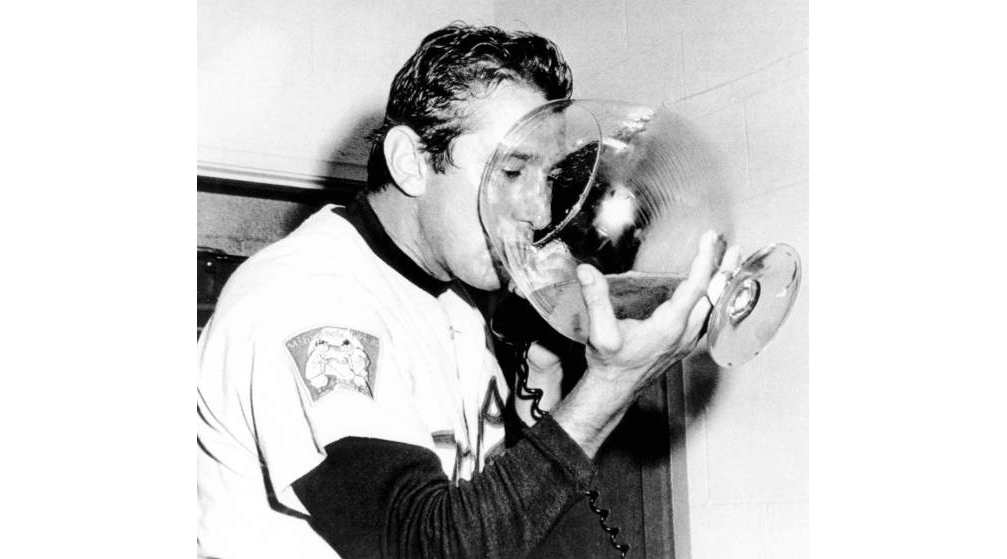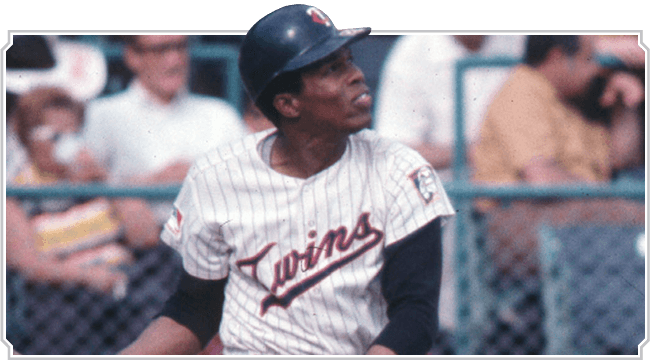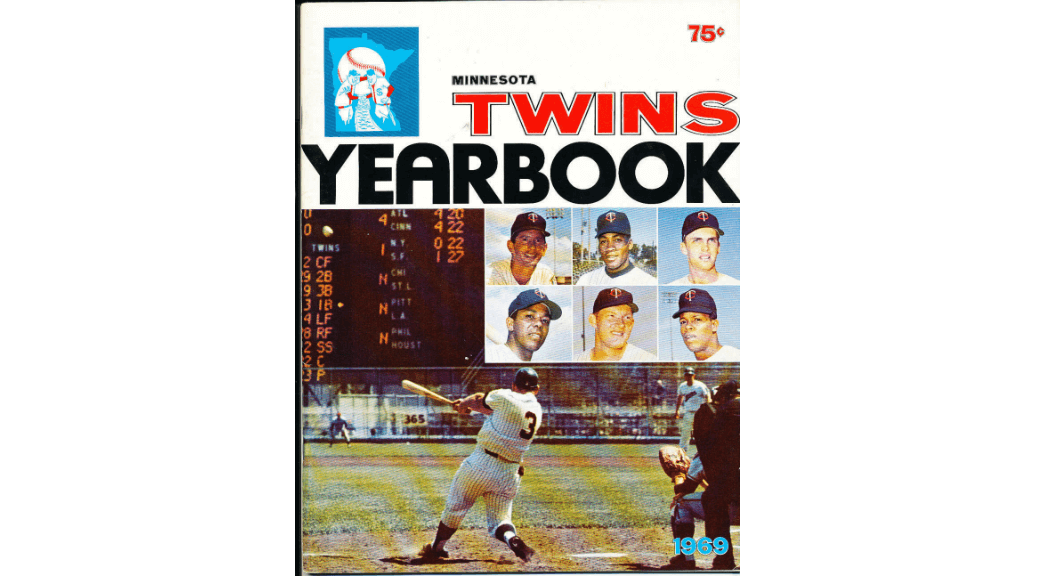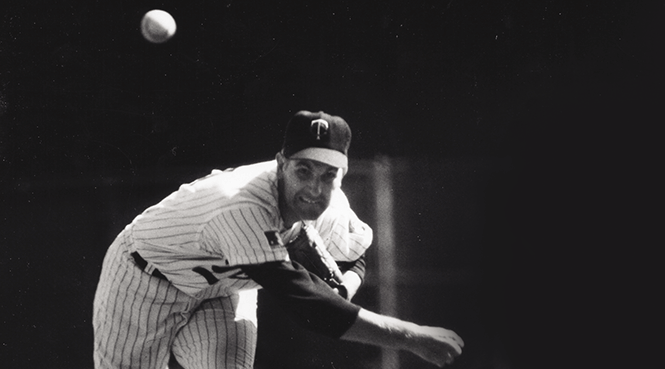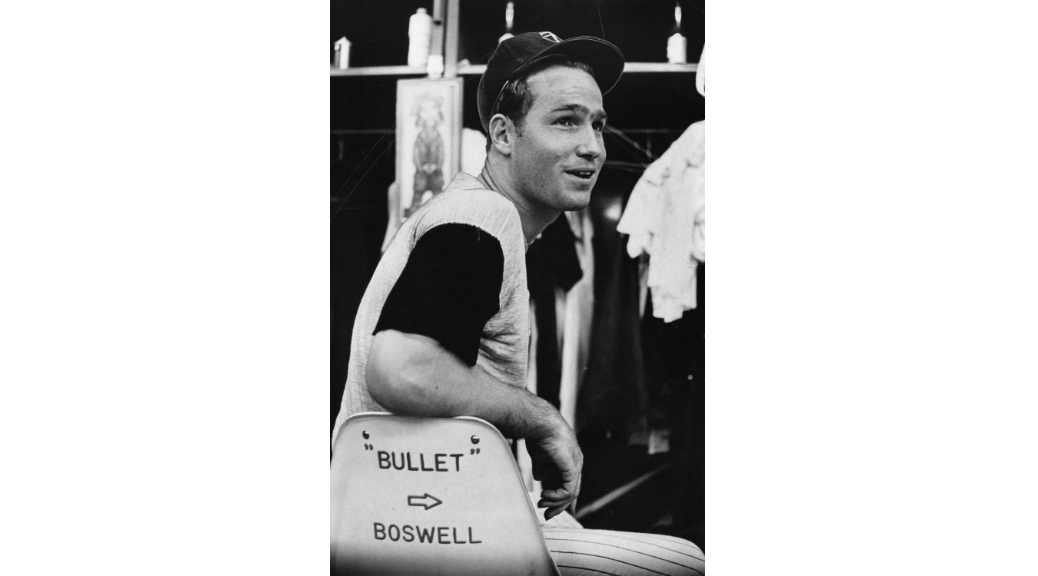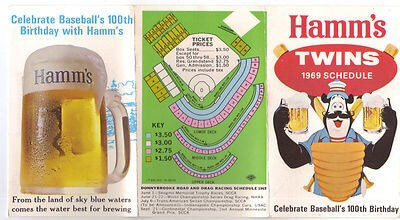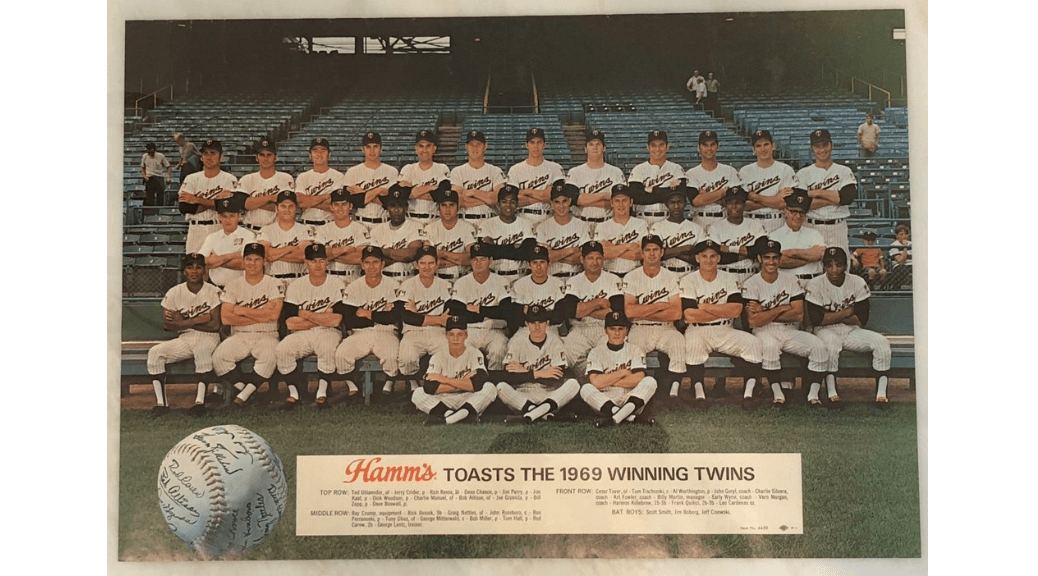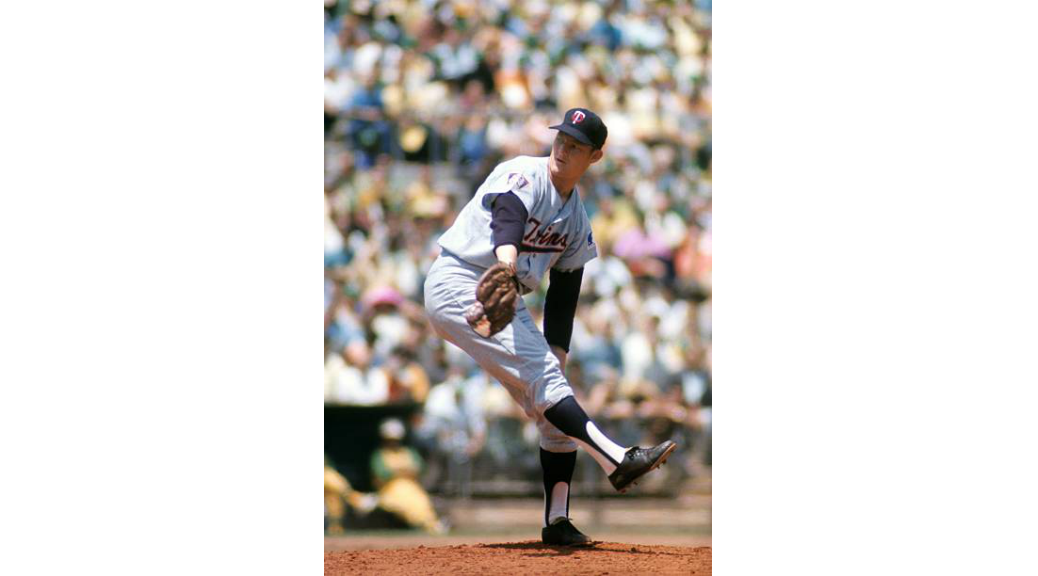OAKLAND 3, MINNESOTA 2 IN OAKLAND (14 INNINGS)
Date: Friday, June 20.
Batting stars: Harmon Killebrew was 4-for-6 with a walk. Dave Boswell was 2-for-3 with a home run and a walk. Rich Reese was 2-for-4. Ted Uhlaender was 2-for-7 with a stolen base, his eleventh.
Pitching stars: Boswell pitched 8.1 innings, giving up two runs on eight hits and four walks and striking out eight. Ron Perranoski pitched 3.2 scoreless innings, giving up two hits and a walk and striking out one.
Opposition stars: Jim Nash pitched seven innings, giving up two runs (one earned) on eight hits and two walks and striking out four. Danny Cater was 2-for-5. Bert Campaneris was 2-for-6 with a walk and a stolen base, his thirty-second. Rick Monday was 2-for-6.
The game: Each team had a ton of missed opportunities. It started in the top of the first, when the Twins put men on first and third with one out and did not score. In the third, the Athletics had men on first and second with none out and did not score. The Twins put men on fist and second with two out in the fourth and did not score.
The Twins finally got on the board in the fifth. A walk, a hit batsman, and a pickoff error put men on second and third with two out. Harmon Killebrew got an infield single to bring home the run and put Minnesota up 1-0. Oakland got the run back in the sixth on a single, two walks, and a Cater sacrifice fly.
Boswell helped his own cause (whenever a pitcher gets a big hit, you have to say he helped his own cause. it's in the sportswriter's code someplace). with a home run leading off the seventh to put the Twins up 2-1. The Athletics nearly tied it in the eighth. With two out, Reggie Jackson walked and Sal Bando singled. Cater then singled, but Jackson was thrown out trying to score. In the bottom of the ninth, however, Rick Monday singled, was bunted to second, and scored on a single by South Dakota native Dick Green, sending the game to extra innings.
In the tenth, the Twins had men on first and second with two out. A wild pitch moved the runners to second and third and Leo Cardenas was intentionally walked to fill the bases and bring up the pitcher's spot. Oddly, Ron Perranoski (lifetime batting numbers .096/.147/.114) was allowed to bat. To the surprise of, one assumes, no one, he struck out, stranding the runners. Oakland had two on with two out in the eleventh and did not score.
In the thirteenth, the Twins had one out and none on and Perranoski was again allowed to bat. To the surprise of, one assumes, everyone, he singled to center. At that point, he was removed from the game for pinch-runner Rick Renick. Uhlaender followed with a single, but the next two men were retired. The Twins again put two men on in the fourteenth and did not score.
In the bottom of the fourteenth, future Twin Phil Roof opened the inning by reaching on a two-base error by Cardenas. Tommie Reynolds then bunted him to third and was safe on an error by Rod Carew. Carew was removed from the game at that point, with Cesar Tovar moving from third to second, Killebrew moving from first to third, and Bob Allison coming in to play first base. An intentional walk loaded the bases. The next batter was Ted Kubiak, and what happened is described as "Groundout: RF-SS/Forceout at 2B; Hunter Scores/unER; Reynolds to 3B." Why Tony Oliva would throw to second base for a forceout in that situation is anyone's guess, but it brought home the game-winning run for Oakland.
WP: Marcel Lachemann (2-0). LP: Bob Miller (0-2). S: None.
Notes: Carew was 1-for-7, dropping his average to .366,.
Boswell's ERA was 2.87. Perranoski's ERA was 1.45. Miller's ERA was 2.40.
The Twins stranded eighteen men and went 1-for-17 with men in scoring position. Oakland stranded thirteen men and went 2-for-9 with men in scoring position.
Any one-run game gives opportunities for second-guessing, and a fourteen-inning game gives even more. That said, I have no idea what Billy Martin was doing allowing Perranoski to bat twice, especially when he was clearly not a good batter. The first one, in the tenth, basically conceded the inning with the bases loaded. The second one, in the thirteenth, came when he was prepared to take Perranoski out anyway. If someone wants to try to explain this, go ahead, because it makes no sense to me.
As I look at it a little more closely, Martin had shorted himself somewhat on the bench. When the Twins went up 2-1, he made some defensive changes, inserting Tovar in left for Graig Nettles, Frank Quilici at third, with Killebrew moving to first and Rich Reese coming out, and Tom Tischinski replacing Johnny Roseboro behind the plate. Charlie Manuel pinch-hit in the tenth and replaced Quilici in the lineup (playing left with Tovar moving to third). However, he still clearly had Renick and Allison on the bench, and one assumes George Mitterwald as well, all of whom had a substantially better chance of doing something positive at the plate than Perranoski.
I don't know why Carew was removed from the game in the fourteenth inning. He may have been shaken up on the play, although he started the next day. I suppose it's also possible that Martin thought the error was due to a lack of hustle or something--we know Martin was not above embarrassing someone if he thought they weren't playing hard. If anyone knows more about this, feel free to comment.
Record: The Twins were 34-28, in second place in the American League West, one game behind Oakland.

